Since 1988 Chris has travelled all over the world to report on what goes on in the fresh fruit and vegetable business. Chris also moderates many of his magazines' own industry conferences as well as events for other businesses in the sector. Chris' new blog provides an ongoing personal commentary on issues of importance to the fresh fruit and vegetable business.
Don't wanna be here? Send us removal request.
Photo
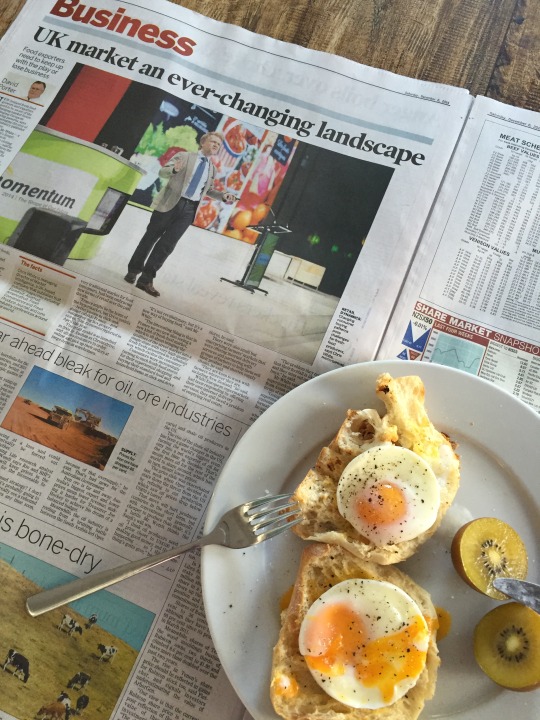
Poached eggs and kiwifruit for breakfast must mean we're in New Zealand. I know it's all the rage to take a picture of what you're eating nowadays, but the photograph of this morning plate of food is accompanied by a big article in the newspaper's business section on the big changes in UK food retailing and my own comments on it. It's enough to give you indigestion.
(Thanks for the photo, Glenn!)
0 notes
Video
Local is big in France too.
Some of their leading retailers are now going out of their way to promote to shoppers the links they have to local growers. For example, E. LeClerc has launched its "Aliances Locales" initiative, which it is pushing instore, online, and in consumer magazines.
I've just written a piece for the January 2015 issue of Eurofruit about the small revolution that France is leading in food retail. I'll post the photo-story when the magazine becomes available online next week.
0 notes
Audio
In New Zealand last week I was very glad to speak alongside the retail analyst Doug Stephens about some of the changes that technology is bringing to the way in which we now shop for out food and everything else for that matter.
It goes without saying that there is a lot of change happening in the retailing business right now, and this short interview with Radio New Zealand outlines just some of them (NB: the three-minute package starts at about the 2.00 minute mark).
Radio New Zealand also wrote up the story here.
0 notes
Video
tumblr
Where next for Chiquita Brands after the recent tie-up with Cutrale, the Brazilian juice business? I was back on the BBC World News just recently to discuss the issue with their presenter Jamie Robertson.
P.S. Cutrale's purchase in the banana business was made with the help of the Brazilian investment group Safra. It's just announced that it's now buying up the iconic London office building called "The Gherkin". There seems to be a pattern developing. Owners of the satirical newspaper "The Onion" are duly warned.
1 note
·
View note
Video
Back from a very busy Dubai at the start of this week and a recent conversation with the boss of a leading fresh produce exporter comes to mind.
He told me that in future we'll need to rethink our approach to sales and marketing, and focus on the sales opportunities in the major metropolitan areas rather than looking always at the problem of how to service fruit to the country as a whole.
So the target, he says, may need to be on supplying quality fresh fruits and vegetables to the world’s 50 largest cities. He’s not talking about the places we’d all love to visit, but the places where the majority of the world's population of 7bn people lives, works, and eats. That’s where the consumer markets of today and the future are located.
Of course it need not be limited the top 50 cities, but that's as good as any place to start.
0 notes
Photo
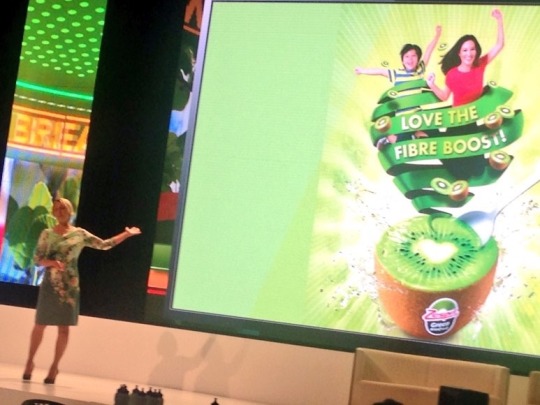
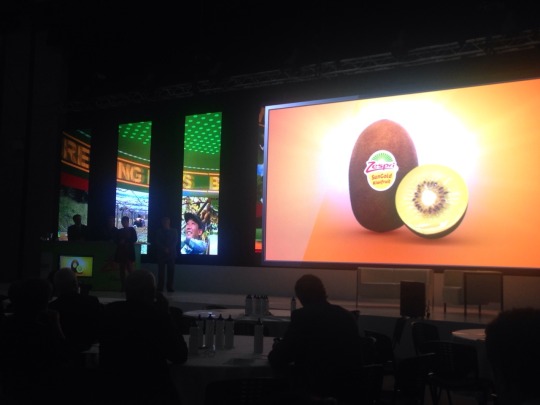
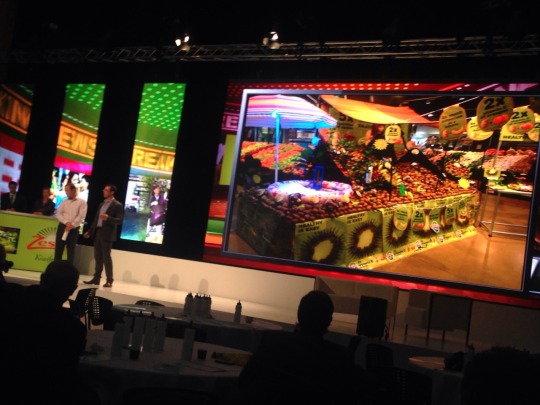
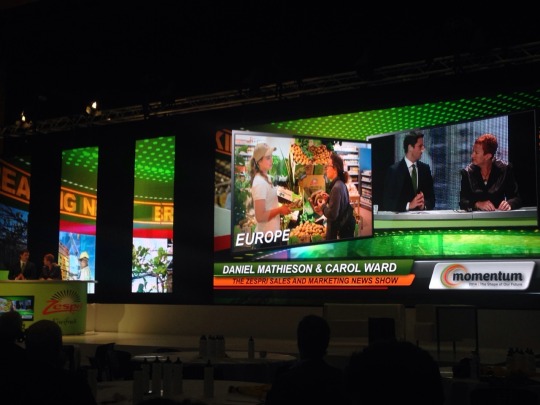
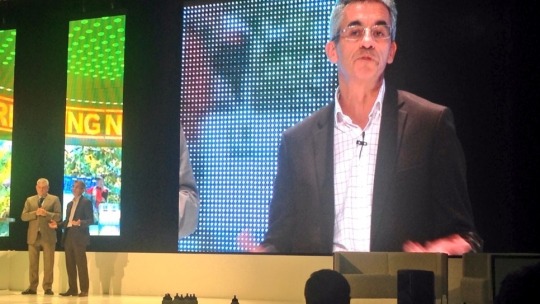
I'm in New Zealand to speak at Zespri's biennial Momentum Conference, and I am astonished by the efforts of the kiwifruit marketer to support its brand in markets all over the world. The range of their activities is hugely impressive. Zespri is actively marketing to consumers all over the world, not only in established markets such as Japan and the EU, but also in new and emerging markets as different as Saudi Arabia, South Africa, and Vietnam. All this effort is designed to support Zespri's kiwifruit sales which are set to grow to 120m tray equivalents by 2020. It seems to me that Zespri's marketing efforts are an example to the business globally of how effectively to engage with shoppers. And retailers who don't yet work with Zespri are missing out big time. Zespri's marketing spend demonstrates how spending money wisely and cleverly and cost-effectively can help boost sales. Quite simply, they're persuading ever more consumers in markets all over the world to make kiwifruit part of their daily diets, and that is surely the most effective way to guarantee business success in future.
1 note
·
View note
Audio
Zespri chief executive Lain Jager tells me about the impact of growing consumer demand for kiwifruit in Asia on New Zealand kiwifruit sales in Europe and North America.
0 notes
Photo
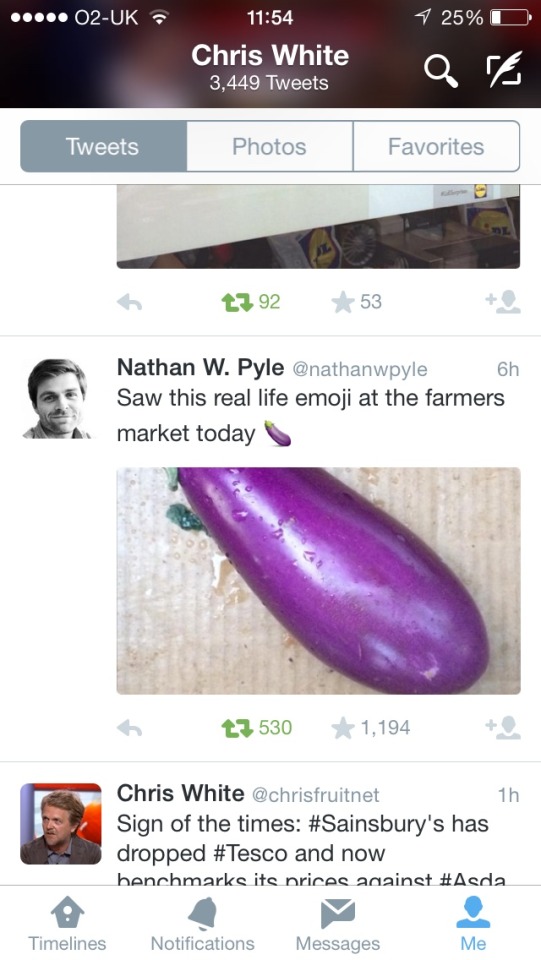
This tweet made me laugh! Social media really is taking over our lives...
0 notes
Video
youtube
Dole in Japan is using social media and clever marketing to excellent effect. Asia is a source of some great ideas when it comes to using the consumer technologies.
http://www.fruitnet.com/asiafruit/article/162844/dole-lauded-for-tokyo-marathon-campaign
0 notes
Video
Headed to Hong Kong for next week's Asiafruit Congress and Asia Fruit Logistica? It seems the sky really is the limit for fresh fruits and vegetables in Asia at the moment. So now's the time to get your Five-A-Day the Hong Kong way... [Video credit: Daniel Lau/Youtube]
0 notes
Text
Chiquita sticks with Fyffes
Chiquita's decision to stick with its merger with Fyffes is good news that I think the trade will welcome. It also begs the question what Cutrale will try to do now. Spurned here, surely the Brazilians will now try to buy elsewhere, won't they? http://m.bbc.co.uk/news/business-28798798
0 notes
Audio
Interviewed earlier this week by the BBC World Service's daily News Hour programme about the US$600m bid for Chiquita Brands by Brazilian orange juice giant Cutrale
0 notes
Video
tumblr
That interview with BBC News about Russia's import ban on fresh fruits and vegetables from the EU and other countries
0 notes
Text
Russia bans fresh fruits and vegetables from the EU and more
I was asked to go on BBC News this afternoon to discuss Russia's ban on fresh fruit and vegetable imports from the EU, US and elsewhere. And in the few moments before we went live on air, the news presenter leaned over and asked me a question that I hadn't prepared for.
"Did you see this coming?" he asked. I hesitated. "Yes, I think I did. I think we all did."
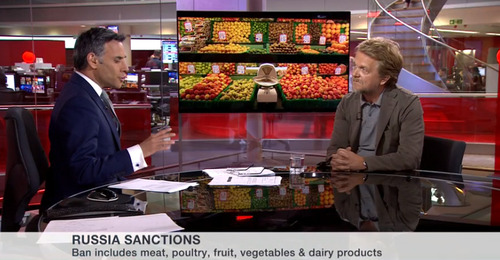
I'd made a few calls this morning to some people I know in the business. "Keep calm and carry on," said one contact down the line from the Prognosfruit apple and pear forecasting conference that's been taking place this week in Istanbul. "We're just going to have to see what happens."
I spoke to another contact, who was also in Istanbul, and I could hear the sigh in his voice which said to me that we had been expecting this all along.
And a third person, a mild-mannered Dutchman who I've known for 20 years, spoke with uncharacteristic severity "If this goes on for one year then it really is a disaster."
This import ban is a big deal. Russia imports some 2m tonnes of fresh fruits and vegetables from the EU worth as much as US$2bn annually. The EU accounts for about one quarter of Russia's annual fresh produce imports. Poland, Spain, and the Netherlands are the largest suppliers.
Back in the BBC studio, the floor manager counted down the seconds and we were live on air. So I spent several minutes answering the presenter's questions (the video is posted on my Facebook page) and told him quite honestly what I thought: that this is a big headache for the fresh produce business, that the fresh produce business is used to these kind of problems, that the fresh produce business is full of flexible and resourceful people who will manage their way through this crisis, and that we all need to eat more fresh fruits and vegetables to help our growers and to help our sectors.
When you come to think about it, these are the answers to all of our problems. And another solution is to look at market opportunities elsewhere in the world. Roll on Hong Kong!
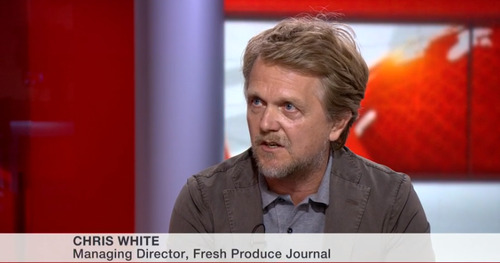
0 notes
Photo
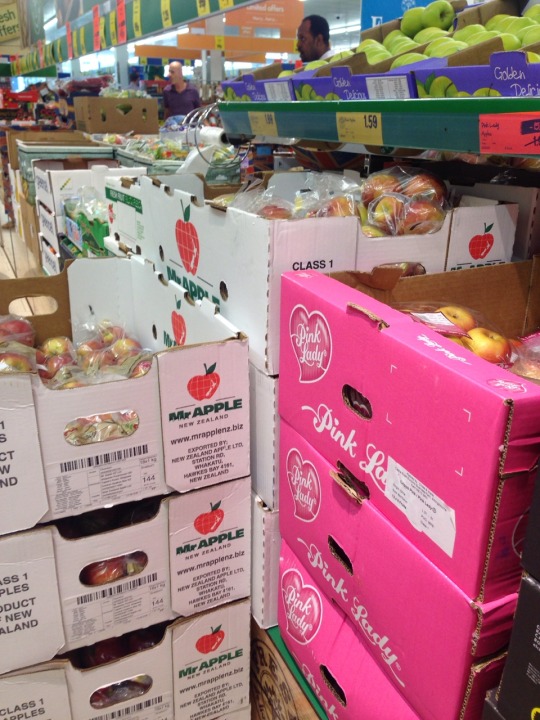
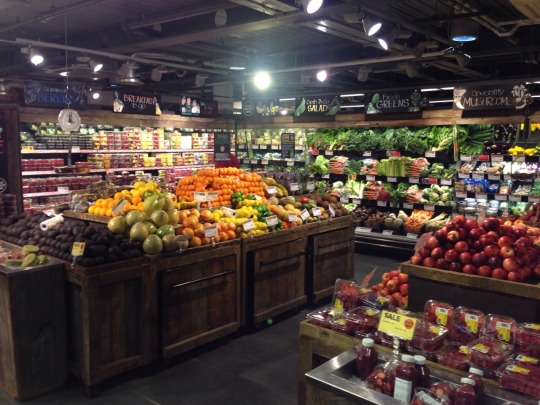
Lidl (left) and Whole Foods (right) are more similar than you first think.
I visited both the other day. At Lidl I get to hand-select the produce I want to buy, and almost always from boxes that have come straight from their suppliers' farms; at Whole Foods the story is all about free flow too, and it also "celebrates" its suppliers, even if it's in a different and more obvious way than at Lidl.
And it seems to me that both Lidl and Whole Foods are closer to the idea of a farmers' market than are any of the other local supermarkets I can shop at. At both Lidl and Whole Foods I feel a connection to the grower that is more direct than the one I feel in any other supermarket. And I think it's got to do with the instore visibility of producer brands, and to the fact that I get to select the fresh produce I want to buy.
Isn't there something for the mainstream supermarkets to consider in these two issues? After all they have some very big questions they need to ask themselves.
In the UK the supermarkets in the middle market are struggling. They are looking for a way in which they can relate more effectively with their customers, that is to say with their shoppers AND with their suppliers.
Last week I had my Damascene moment. The time has come for them to have one too.
1 note
·
View note
Text
CH Robinson and an English country house
Charles Henry Robinson was an American entrepreneur whose fortune made in the print business was used to buy a beautiful 14th century county house in England. I went there last weekend.
Charles Henry Robinson happens to be the person behind CH Robinson, the US$13bn US logistics company that still bears his name. It recently opened a new joint venture called Robinson Fresh which deals in fresh produce logistics.
Mr Robinson's country pile, which he bequeathed to the National Trust and is now open to the public, is a stone's throw away from Paddock Wood. The Kent village is a distribution hub for fresh fruits and vegetables in the UK. It is where several companies have their headquarters.
It's now more than 100 years since Charles Henry Robinson sold off his shareholding in the company that continues to carry his name. But the linkages between yesterday and today live on in some very unexpected ways.
Mr Robinson wouldn't recognise today's printing business. And it has to be said that CH Robinson's investment into the fresh produce business is a sign of the changing nature of our sector too.
Next time you are near Paddock Wood you should go visit.
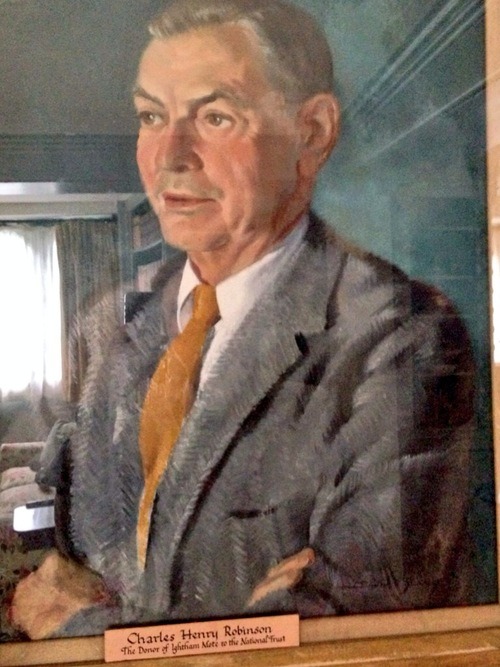
0 notes
